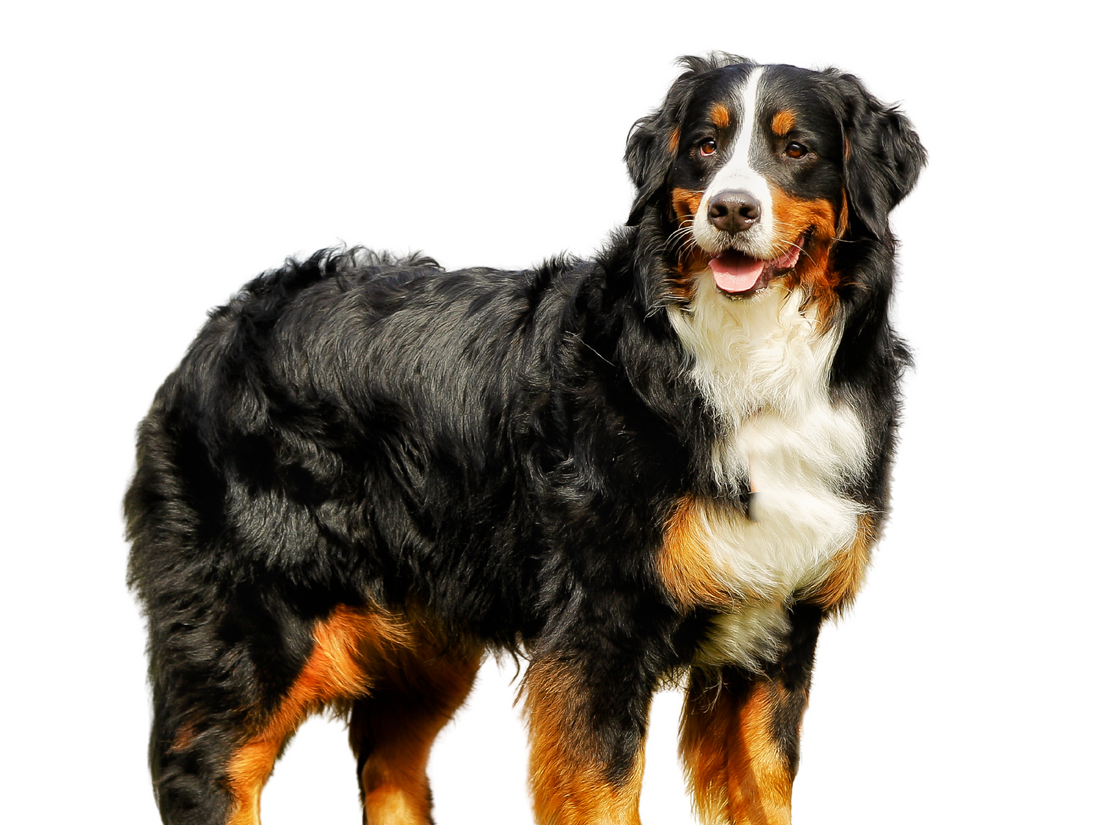
The Gentle Bernese Mountain Dog: A Comprehensive Guide for Dog Owners
Share
The Bernese Mountain Dog
The Bernese Mountain Dog, known for its striking appearance and gentle temperament, is a beloved breed that excels as a family companion and working dog. With its origins in the Swiss Alps, this large and sturdy breed is well-suited for a variety of tasks and environments. This guide will explore the Bernese Mountain Dog's history, characteristics, care needs, and more, offering valuable insights for both prospective and current owners.
History and Origin
The Bernese Mountain Dog, or Berner, originates from the Swiss Alps, where it was used as a farm dog for driving cattle, pulling carts, and serving as a loyal companion. The breed is one of four Swiss mountain dog breeds, collectively known as Sennenhunds. Berners were developed by crossing mastiff-type dogs brought by Roman soldiers with local herding dogs. The breed was recognized by the American Kennel Club (AKC) in 1937 and has since become popular for its versatility and friendly nature.
Physical Characteristics
Bernese Mountain Dogs are large, sturdy dogs with a distinctive tri-color coat. They typically stand between 23 to 28 inches tall at the shoulder and weigh between 70 to 115 pounds. Their thick, double coat is black with rust and white markings on the chest, face, and legs. Berners have a strong, muscular build, a broad head with expressive, dark eyes, and medium-sized, triangular ears that hang close to the head. Their tail is bushy and carried low.
Temperament and Personality
Bernese Mountain Dogs are known for their gentle, affectionate, and loyal nature. They are excellent family dogs and get along well with children and other pets. Berners are friendly and sociable, making them great companions for both individuals and families. They are also intelligent and eager to please, which makes training relatively easy. However, they can be somewhat reserved with strangers, which, combined with their size, makes them good watchdogs. Berners thrive on human interaction and enjoy being involved in family activities.
Exercise and Training Needs
Bernese Mountain Dogs are moderately active and require regular exercise to stay healthy and happy. Daily walks, playtime, and mental stimulation are important. While they enjoy outdoor activities, they are not as high-energy as some other working breeds and are generally content with moderate exercise. Early socialization and positive reinforcement training are crucial to ensure a well-behaved and confident dog. Berners are eager to please and excel in activities such as obedience, therapy work, and cart pulling.
Grooming and Care
The Bernese Mountain Dog's thick double coat requires regular grooming to keep it in good condition. Weekly brushing is necessary to remove loose hair and prevent matting, and more frequent grooming is needed during shedding seasons. Regular baths, ear cleaning, nail trimming, and dental care are also important aspects of maintaining their health and appearance. Despite their dense coat, Berners can be prone to certain skin conditions, so it’s important to monitor their skin and coat regularly.
Health and Lifespan
Bernese Mountain Dogs are generally healthy dogs but can be prone to certain health conditions. These may include hip dysplasia, elbow dysplasia, and certain types of cancer, which are unfortunately common in the breed. Regular veterinary check-ups, a balanced diet, and adequate exercise can help maintain their health. The average lifespan of a Bernese Mountain Dog is around 7 to 10 years, with many living longer with proper care.
Living with a Bernese Mountain Dog
Bernese Mountain Dogs are best suited for homes with plenty of space, such as rural or suburban settings, where they can play and exercise. They thrive in environments where they have access to a yard and can participate in family activities. While they are good with children, supervision is advised due to their large size and strength. They can coexist with other pets if properly socialized from a young age. Berners enjoy being close to their families and can experience separation anxiety if left alone for extended periods.
Finding a Bernese Mountain Dog
If you’re considering adding a Bernese Mountain Dog to your family, it’s important to find a reputable breeder or consider adopting from a rescue organization. Responsible breeders will provide health clearances for their dogs and allow you to meet the puppy’s parents. Rescue organizations often have Berners looking for loving homes, and they can be a great option for finding an adult dog.
The Bernese Mountain Dog is a breed that combines a gentle nature, distinctive appearance, and versatility. While they require regular exercise and grooming, the rewards of owning a Bernese Mountain Dog are immense. They bring loyalty, affection, and a loving spirit to any household. If you’re prepared for the responsibility, a Bernese Mountain Dog can be a wonderful and devoted addition to your family.